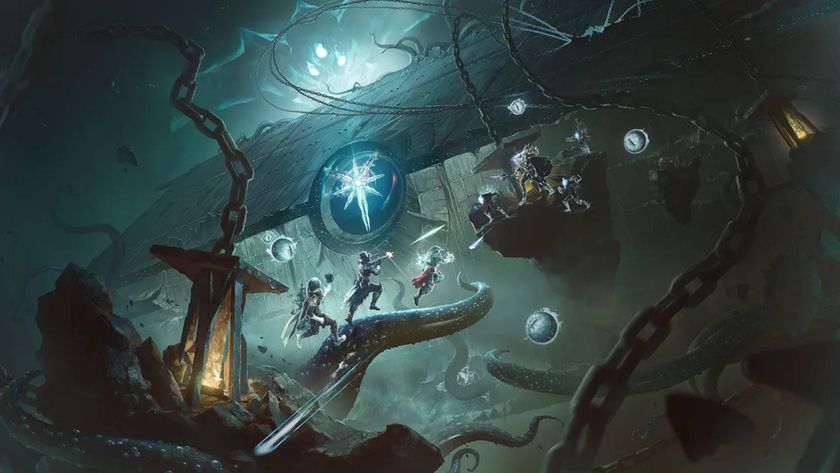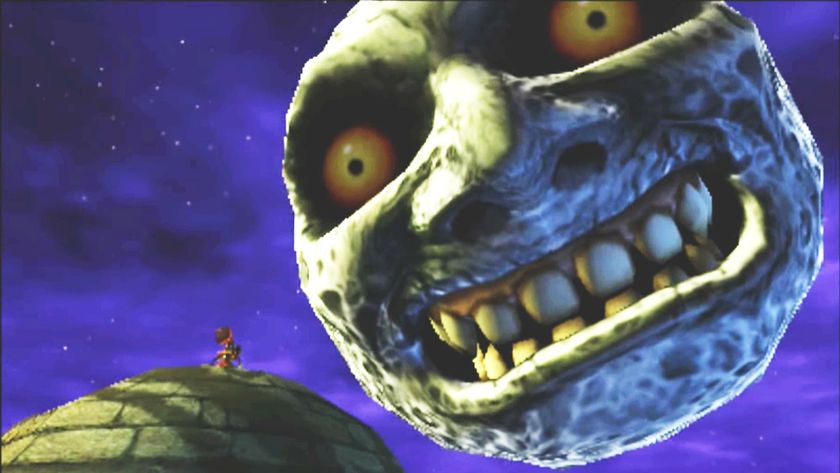These games are not what you think they are
Why Sonic's not a platformer and Final Fantasy isn't an RPG at all
Sometimes it's a good thing, introducing players to genres they'd ordinarily never touch, hidden under the guise of something else. Sometimes it kills the game's chances dead, leading to its evaluation on the wrong terms entirely. And sometimes... Sometimes it's just plain old confusing. Read on, as we unmask the real games hiding underneath some of our favourite facades.
Bioshock
Perceived genre: FPS
Actual genre: RPG
If there's one criticism that keeps coming up amongst the Bioshock doubters, it's the fact that the shooting mechanics don't hold up against the likes of CoD and Half-Life. And they don't. In comparison, Bioshock's shooting is a clunky affair, lacking the immediacy of the former and the variety of the latter. But that's not the point. In fact that line of argument is like criticising the combat in a Zelda game for not being as sharp as that in Devil May Cry.

The thing is, as much as Bioshock was sold as a shooter, the shooting isn't its primary focus, just as combat tends not to be the focus of most action RPGs. Because it is an RPG. Now before you go comparing it unfavourably against the choice-driven likes of Fallout 3, consider the trappings of the more traditional Japanese RPG.
A linear story with only light explorative deviation allowed from the game's main "route". Character customisation, but only within the confines of attack, defense and a couple of abilities. Enemies and locked areas which react to progressively learned new attacks. Progressive levelling up. An emphasis on tone and narrative above all else. A mysterious male hero on a voyage of self-discovery? And speaking of which...
Sign up to the 12DOVE Newsletter
Weekly digests, tales from the communities you love, and more
Final Fantasy
Perceived genre: RPG
Actual genre: Interactive movie
Just where is the role playing in the average Final Fantasy game, exactly? Yes, there's a story. Yes, there are engaging characters. Yes, there is weapon and armour customisation. But the actual playing of a role? Nope. Barely any.

What we have in Final Fantasy games are essentially interactive storybooks, wherin the narrative progresses completely independently from the player's input. You might have defeated that boss and saved that town, but everything that happens as a result is a pre-scripted scenario during which 'your' character becomes the possession of the developer once again, saying and doing only what they wish.
The player input lies only in reaching the next point at which the story is advanced, and never in actually advancing it first-hand. Random battles can neither be picked nor avoided. Character choice never comes into it. The tale is always epic, but it contains little more role-playing than pressing play on a DVD remote.
Resident Evil
Perceived genre: Survival Horror
Actual genre: Point and Click Adventure
Ah, Resi, the series which cemented the survival horror genre as the freshest new export of the 32-bit age. 3D zombie killing, tense scenarios, thick atmosphere, dripping, isolated fear... All good stuff, but all peripheral elements disguising the fact that the early Resident Evil games were actually just an extension of a much, much older genre.

Take away all the shadows and gore from Resident Evil, and what are you left with? Fetch quests, highly obscure logic puzzles and a fairly pedestrian pace. It might all be broken up with the occasional zombie attack or boss fight, but essentially what you're doing in a pre-4 Resident Evil game is the same as we were doing in the PC point and clicks of old, just in 3D and with shotguns.
Viva Pinata
Perceived genre: Virtual Pet
Actual genre: RTS
Oh how we groaned when we saw Viva Pinata. We knew that Microsoft had very probably bought Rare with the intention of absorbing some of the N64's bright, shiny, family-friendly fun into the Xbox 360, but was an animal-collecting Pokemon rip-off the best they could come up with? And lo, Viva Pinata did bomb amongst the hardcore. Which is ironic given how stupidly hardcore a game it actually is if you want it to be.

It's basically an RTS in reverse, where instead of trying to wipe out an external threat, you're juggling a tactical balance in order to keep your own units alive. Because unlike the average RTS army, they'll eat each other to bits given half the chance.
It's all about resource management (Can you afford that fence? Are you making enough money from your Pinata produce output?), understanding unit relationships (Want that Pretztail? Better start breeding Quackberries as bait then. Want a Quackberry? Better dig a pond) and dealing with the terrain around you (Did you remember to keep the gate shut? Why haven't you got enough land to keep your Pinatas safely separate?), making it as RTS as it gets. Many people don't realise that of course, as VP cleverly lets the player set the pace at every step of the way, but crank things up and you'll be drowning in micro-management within minutes.
Most Popular







